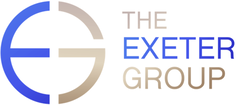You may have heard the adage that data is friendly. We believe data is not only friendly but it’s your best friend. And like a good friend, data is helpful and supportive. We can count on data to be on our side and guide us when needed. And at times, data knows us better than we would like to admit.
Workforce and patient data are no different. They can provide a healthcare organization with the information necessary to understand its talent management current state. Analyzing quantitative and qualitative data can move the organization beyond symptoms to uncover root causes of identifying, developing. and retaining talent generally, and diverse talent specifically. Data can also provide an integrated road map for talent management leaders (Human Resources, Organizational Development, Diversity & Inclusion, Patient Experience, and Talent Acquisition/Recruitment) to develop targeted solutions that address specific future state goals. Equipped with data, an organization is able to build meaningful leadership competencies, or develop relevant training content for mid-level clinical and non-clinical leaders, or be intentional about creating pipelines to develop talent. Finally, consistently measuring the impact of talent management solutions (by looking at data, of course) is critical for sustainable results.
The possibilities are limitless when data has your back. Given the potential for workforce and patient data to increase diversity and move the cultural competency needle for organizations, we need to treat data like the BFF it can be instead of the foe (i.e., BFFN – Best Friend for Now) it is sometimes perceived to be. While some may find data to be scary and full of pitfalls, treat data like your BFF and data will return the favor.
Connect with an Exeter representative (312) 475-2800

